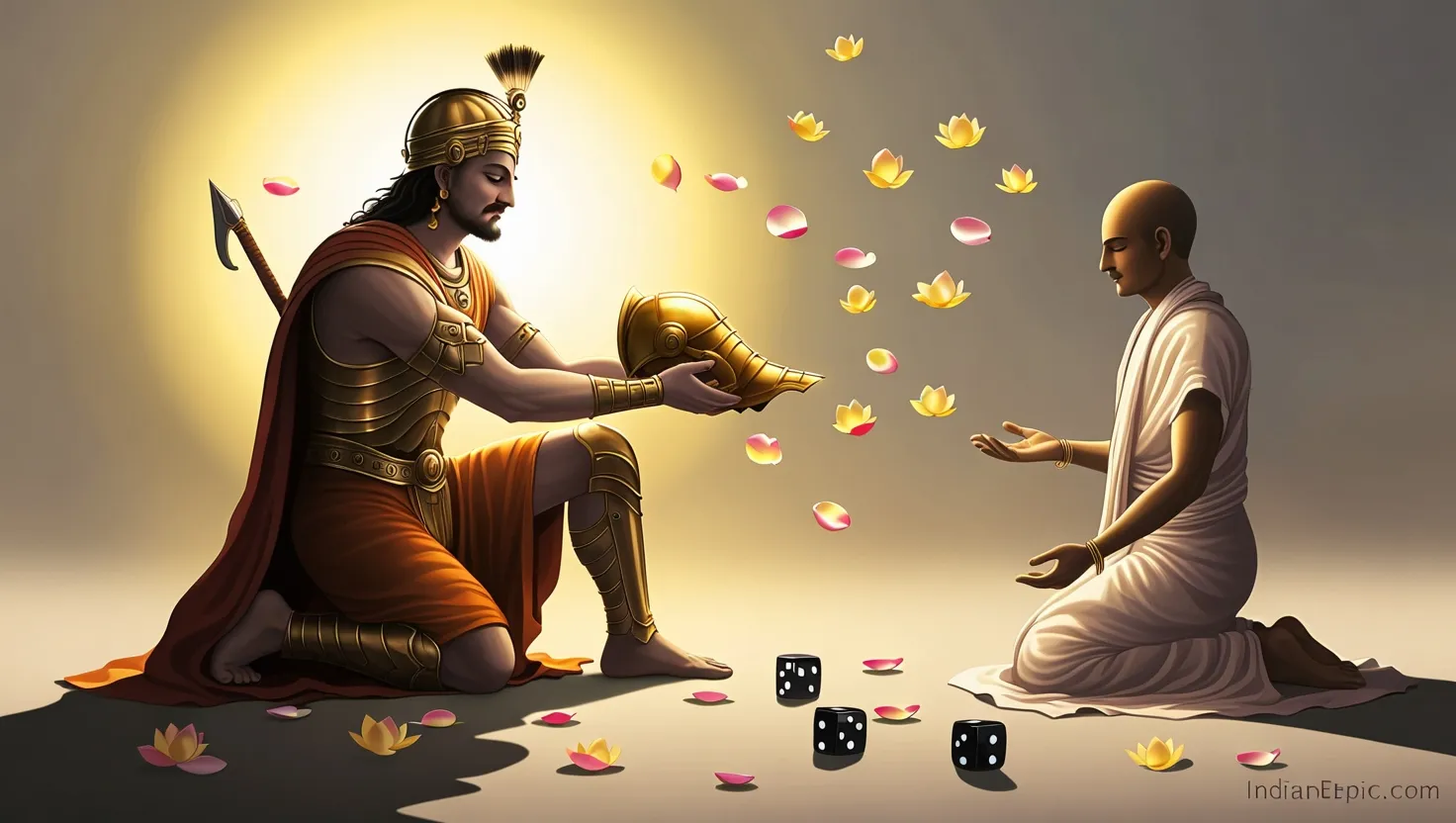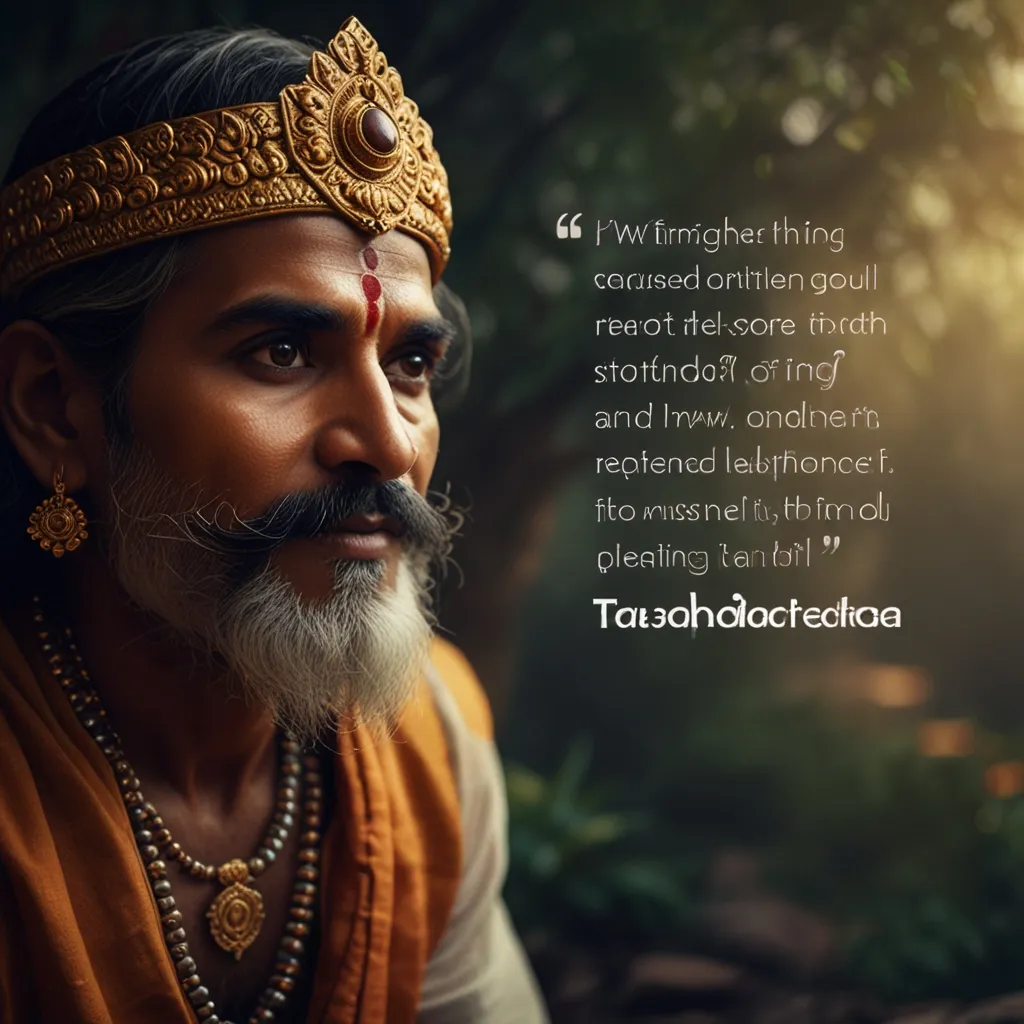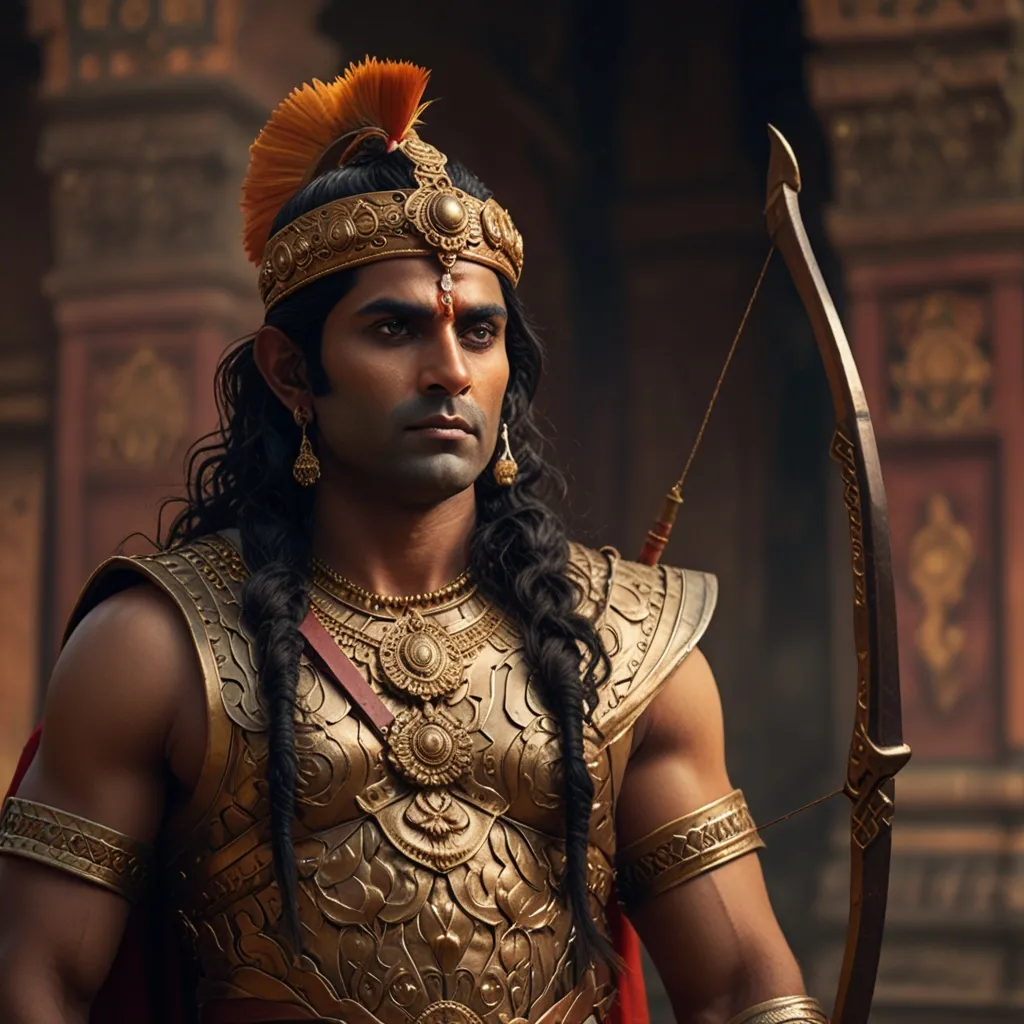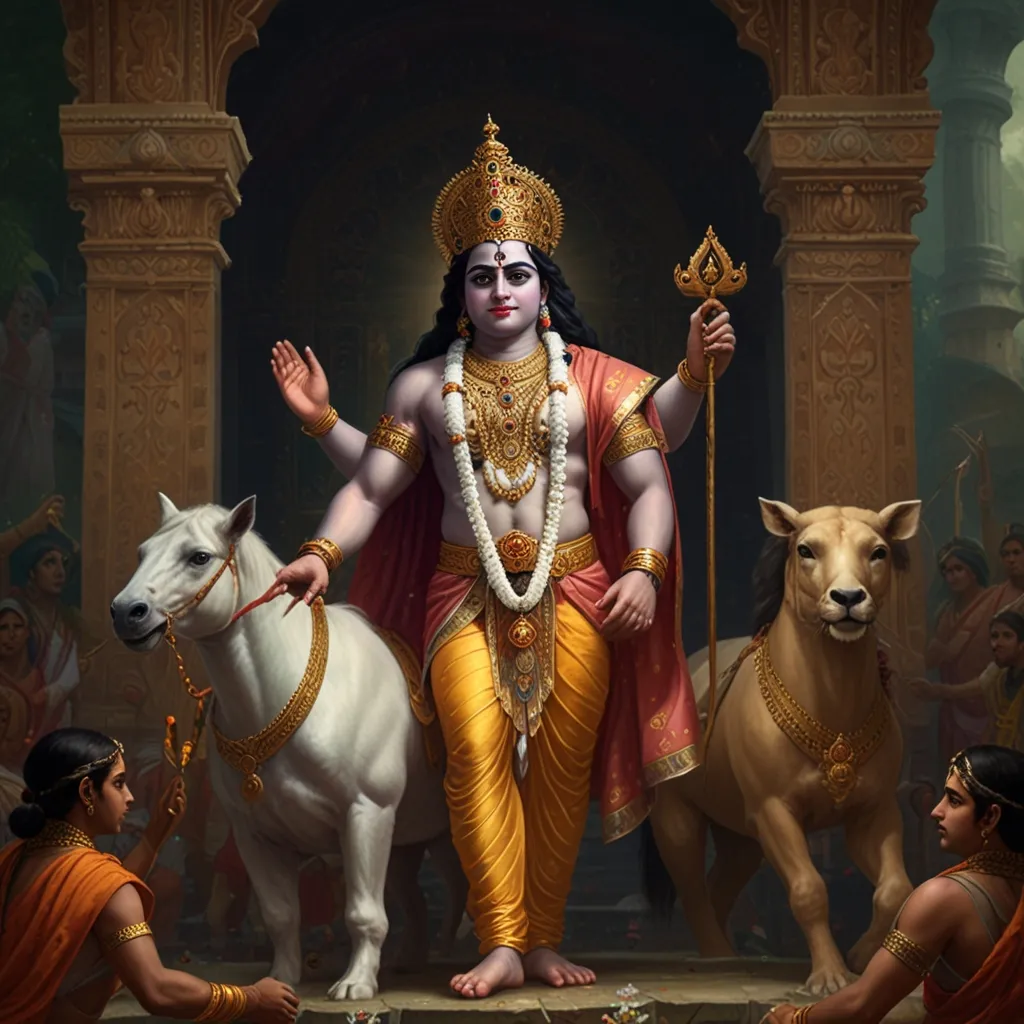If you think about wealth and its role in our lives, stories don’t often come grander or more intricate than those found in the Mahabharata. This ancient epic, despite its scale and supernatural elements, is intensely human. I find myself drawn to its complex web where material exchanges are never just about material. Every gift, bribe, gamble, or act of charity comes loaded with meaning. I want to talk you through how wealth, in all its forms, shapes destinies, tests morality, and even bends reality itself in this epic—and perhaps challenge how you look at your own relationships with giving, taking, and risking.
At first glance, you might see the Mahabharata as a tale of war and familial rivalry, but pay closer attention to the way wealth travels from hand to hand. Wealth, here, is never purely about gold or cattle or territory. Instead, it is a living current, shaped by intention, ritual, power, and karma. How often in modern life do we see a simple exchange become anything but simple—a contract, a favor, a wager gone wrong?
Let’s begin with Karna, perhaps the most tragic and misunderstood hero. His promise to give away anything requested at any time turns charity into a test of selfhood. In the episode with Indra, who comes disguised as a Brahmin, Karna hands over his divine armor and earrings—the only shield between him and certain death. In giving, he loses his future. Or does he? I like to think Karna’s true wealth lies not in what he owns but in what he is willing to lose for his word. Isn’t there something chillingly modern in his predicament—a man out-principled by his own principles? As the philosopher Simone Weil wrote, “To be rooted is perhaps the most important and least recognized need of the human soul.” Karna’s roots, paradoxically, are in his dispossession. When we give til it hurts, do we become free or merely vulnerable?
Contrast this with the infamous dice game, one of the most discomforting spectacles in all literature. Here, Yudhishthira wields his right as king, staking vast fortunes and eventually his own family. Each roll of the dice peels away honor, property, and self-respect, turning privilege into powerlessness. The ritual of the wager, originally a test of skill and fairness among equals, is perverted into a cruel, predetermined theft. Duryodhana and Shakuni—standing for cunning and malice—turn the sacred trust of the gift economy into horror. Have you ever watched a ‘friendly’ game devolve as the stakes become too personal?
There’s something quietly revolutionary in Draupadi’s response. When staked and humiliated, she does not simply accept her fate; she interrogates the very rules that permit the abuse. Her interventions force the assembled court to confront what happens when rules lose their ethical center. Draupadi’s famous question—“Whom did you lose first, yourself or me?”—reverberates across centuries. We are left wondering: at what point does attachment to objects become the abandonment of people? In a world obsessed with acquisition, is there a line we promise never to cross, only to discover we crossed it long ago?
“Generosity is giving more than you can, and pride is taking less than you need.” — Khalil Gibran
One of the lesser discussed intricacies of this saga lies in the Akshaya Patra, the inexhaustible vessel bestowed upon Draupadi. This magical object could feed untold numbers but not until Draupadi herself had eaten. Its secret was so simple, yet so profound: sustenance multiplied only when the needs of others came before your own. The vessel’s magic rewards humility, not greed—a rebuke to those who hoard. During exile, as the brothers share hardship and lean on the world’s charity, there’s an inversion of the royal norm. Dependence, often seen as degrading, becomes transformative. Have you ever noticed how a period of humility recalibrates your whole sense of abundance and loss?
Material exchange doesn’t just measure virtue; it makes virtue. When Arjuna, Bhima, and the other Pandavas work in disguise—teaching, cooking, serving—they enter a world ruled by necessity rather than privilege. The old social order collapses. For the first time, they survive as ordinary men, seeing from the inside how dependence and labor shape character. Consider the modern obsession with self-made success. In the Mahabharata, greatness emerges from forced vulnerability and honest work. Is dignity earned only through independence, or can it also be found in mutual obligation?
Let me ask: What does it say about a society when bribes decide loyalty more than bloodlines or ideals? Duryodhana’s offering of kingship to Karna solidifies a bond anchored not in justice, nor kinship, but in material obligation. Even Drona the guru, otherwise famed for wisdom, demands a reward from Ekalavya—a thumb in payment for forbidden knowledge. These transactions corrupt the flow of dharma. The moment knowledge and loyalty are bought and sold, their value collapses. The epic quietly suggests that the commodification of trust is ruinous, an idea that whispers warnings to our contemporary world of networking, patronage, and transactional collaborations.
Wealth, in this epic, expands and contracts as a measure of fate. Maya, the architect saved by Arjuna and Krishna, reciprocates with the construction of Indraprastha’s legendary hall—a gift born of gratitude, yet the springboard for envy and disaster. Duryodhana’s jealousy upon viewing this marvel sets in motion the chain of events leading back to exile, war, and loss. The unintended consequences of gratitude echo down generations. Have you ever given a gift only to see it create resentment or rivalry instead of harmony?
As the narrative winds toward its end, material life is abandoned altogether. The Pandavas’ final journey away from kingdom and wealth toward the Himalayas becomes a trek into self-abnegation. All the treasure, all the labor, all the victories—left behind. Freed from possessions, they seek spiritual wealth, a kind of prosperity that cannot be counted or measured.
“Not everything that can be counted counts, and not everything that counts can be counted.” — Albert Einstein
What lingers in my mind are not the monumental losses or fortunes won and lost, but the invisible wealth revealed through these acts. Dharma has its own currency, measured not in coins but in choices, intentions, and sometimes, sacrifices too costly for words.
It’s easy to read the Mahabharata and see only the external stakes: land, gold, power. But read a little closer, and what becomes clear is how these material currents test, reveal, and sometimes corrupt the soul. The epic isn’t content just to show the dangers of greed or the glory of sacrifice. It’s far more ambiguous, suggesting that every act of exchange—whether a king’s charity, a brother’s wager, or a cook’s humble meal—opens a window into the world’s secret economy of meaning.
When Sharma, a king, boasts about what wealth can buy, a wise adviser quietly warns, “The things that matter most are rarely for sale.” Gifts create bonds and obligations, but they can also stifle and wound. Wagers offer chance and hope, but temptation crowds out reason. Bribes can short-circuit justice even as they appear to buy peace. And yet, within these same exchanges lie the seeds of transformation.
Why do we find ourselves moved by the sight of Karna giving away his last defense? Why does the dice game’s corruption of the sacred provoke outrage, beyond its apparent injustice? I believe it is because we recognize, in these extravagant gestures and betrayals, our own struggles with what we owe and what we desire. The ancient dilemmas of the Mahabharata—should I give, withhold, risk, obey, or dissent?—stand at the heart of every negotiation, every boardroom meeting, every quiet moment of charity or withholding.
“To give anything less than your best, is to sacrifice the gift.” — Steve Prefontaine
The Mahabharata is, above all, a reminder that material life and spiritual life are never truly separate. Every transaction lays bare our hopes, our limitations, and above all, our consequences. The gifts we give, the gambles we take, the bribes we accept or refuse—each becomes a mirror. Sometimes we pay in currency. Sometimes, the cost is measured in what we become.
So, next time you find yourself at a crossroads—a bargain, an opportunity, a plea for help—ask, what is really being exchanged? Wealth is more than what passes through hands. It’s the ever-shifting dance between duty, desire, and destiny. What, after all, is your true currency?






